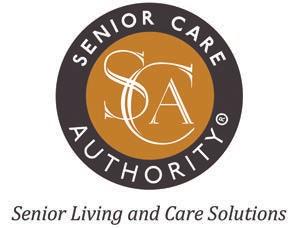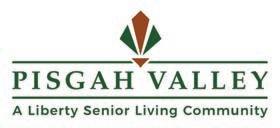
30 minute read
Senior Housing Checklist
Senior Housing Checklist What to Look for and Ask When Considering a Move to Senior Housing
Thinking about moving to senior housing? Here is a comprehensive checklist of questions to ask and things to consider when evaluating the options for you or a loved one:
The Property
Are the grounds attractive? Is the building well kept? Are the common areas inviting?
Is it handicap accessible? Are hallways and doors wide enough for walkers and wheelchairs? Are handrails in the hallways? Are there elevators as well as stairs? Is it well lit?
What precautions are being taken to reduce the spread of COVID-19? Does it have a pleasant smell? Do you like its layout? Is it easy to find your way around? How close are amenities like the dining room and recreational areas to living quarters? Is security on the grounds 24 hours a day, seven days a week? How far is it from where loved ones live?
The Staff
Are staff present throughout the property?
Are the front-desk staff friendly on the phone and in person? continued on page 68

Senior Care Authority Finds Housing and Care Solutions That Best Fit Seniors’ Individual Needs
Finding the right senior housing and care can be challenging. To help seniors and their loved ones navigate these decisions, Senior Care Authority acts as an advocate and offers services that help people find senior housing and care solutions in the Carolinas.
With a coverage area that encompasses 11 counties in Western North Carolina and eight counties in Upstate South Carolina, Senior Care Authority connects seniors and their families with senior residential and care communities that best fit clients’ needs.
Senior Care Authority helps sort through and understand care options, traverses a complex healthcare system, gets accurate and up-to-date information and connects clients to vetted local resources.
Through its relationships with senior communities throughout the Carolinas, Senior Care Authority has knowledge of which ones may be the best matches for individuals and their particular wants and needs, including financial, medical, religious and social criteria.
“We work with families and the seniors themself to identify what’s important in terms of housing and care,” Senior Care Authority Owner Linda Cale said. “It’s a privilege to be able to work with families, to be an advocate, to give a sense of not being alone, to help people have a roadmap.”
The Senior Care Placement Process After someone reaches out by phone or fills out a form online, Senior Care Authority follows up with a phone assessment and then a consultation to understand needs, answer questions and discuss suitable options.
A plan is then made with clear steps and goals. Once potential housing and care providers are identified, Senior Care Authority schedules tours, accompanies clients to sites and assists with paperwork and moving arrangements.
Once care has been established, Senior Care Authority follows up to ensure that expectations of the care, comfort and safety needs are being met. Senior Care Authority also can help with finding other resources, such as attorneys, in-home care professionals, fiduciaries, day programs, moving specialists and more.
Senior Care Authority Also Offers ElderCare Consulting Families sometimes need help with challenging transitions, ongoing decision-making and navigating often complex healthcare systems, particularly when a senior loved one’s desire is to stay independent and safe at home as long as possible.
Through its ElderCare Consulting services, Senior Care Authority can facilitate essential conversations between family members, locate a skilled nursing facility, help with home care agency or caregiver selection, coordinate longdistance caregiving, find the right resources and make regular visits to a loved one, providing families with peace of mind when they are unable to be there in person.
ElderCare Consulting plans are not “cookie cutter” but rather are customized for families. Also, there is no fee for an initial consultation.

Linda Cale, Owner
Senior Care Authority Serves: The Western North Carolina counties of Buncombe, Cherokee, Graham, Haywood, Henderson, Jackson, Macon, Madison, Polk, Swain and Transylvania.
The Upstate South Carolina counties of in Anderson, Cherokee, Greenville, Laurens, Oconee, Pickens, Spartanburg and Union.
Is every staff member at every post – front desk, maintenance, housekeeping, healthcare, dining room – appropriately dressed, pleasant and attentive? Are your phone calls and emails responded to promptly? Is it easy to reach someone by phone and to leave a message? Do staff members know residents and address them appropriately?
The Residents
Are the common areas active?
Do residents look well and happy and are they socializing? When you ask them, what do residents have to say about life in their community



and their satisfaction with food, healthcare and other services? Does the property have a newsletter or monthly calendar of events in print and/or by email or online? If so, check out several months’ worth to see if the frequency of and types of activities offered are appealing to you.
The Food
What dining options are available?
Is there more than one dining room?
Are complimentary coffee, tea, water and other beverages available throughout the day? Can you carry out meals to go or have them delivered, and if so, is there an extra charge?
What meals does the dining room serve and how many are included in the monthly fee?
Easy Mountain Living
Nestled on 75 beautiful acres, Givens Highland Farms is just minutes from downtown Black Mountain and a short drive to Asheville. Our walkable, pet-friendly, Life Plan Community encourages an active and natural lifestyle.

Freedom from responsibilities, such as yard work and home maintenance gives our residents more time to enjoy a unique, carefree mountain lifestyle.
New Apartments Coming! For more information, call 828-357-3621
For more information, call 828-357-3611
givenshighlandfarms.org
Is the dining room full at dinner? What foods are available every day? Get sample monthly menus to review. Are meals for people with special dietary requirements available? Does the food taste good? Is it presented with pride? Are portions to your liking? Dine in the dining room at least once. Is there a private dining room if you wish to host a special event? Are special meals offered on holidays?
Services and Amenities
What services are available? Laundry?
Housekeeping? Transportation to and from shopping, medical and other appointments, and special events? Wi-Fi?
If transportation is available, how often does it run, how far will they take you and is there an extra charge?
Are there on-site recreational facilities for exercise, games and other activities?
What activities are available daily? What special events are offered? Check out several months of events calendars. Is there an on-site hair salon or barber?
Is there newspaper delivery, telephone, TV, cable and Internet availability? Are there accommodations for overnight guests? Is there assistance with WhatsApp, Zoom, Skype or other video messaging platforms so relatives and friends can visit virtually? Are any religious services offered?
continued on next page
Think Think small and small and LIVE BIG LIVE BIG



Big Advantages to a Small Community Big Advantages to a Small Community
There There ’ ’s something about the vastness of the s something about the vastness of the mountains that creates a longing for something smaller mountains that creates a longing for something smaller and more intimate. Nestled in a serene setting just and more intimate. Nestled in a serene setting just outside of the vibrant city of Asheville, North Carolina, outside of the vibrant city of Asheville, North Carolina, Pisgah Valley is a right Pisgah Valley is a right -sized retirement community with -sized retirement community with big advantages. big advantages. Here the staff and fellow residents not only know each Here the staff and fellow residents not only know each other other ’ ’s names, they really get to know and s names, they really get to know and appreciate one another as individuals. This greater appreciate one another as individuals. This greater sense of community leads to more frequent and sense of community leads to more frequent and meaningful social interactions, including engaging in a meaningful social interactions, including engaging in a range of social and enrichment activities. range of social and enrichment activities.
Schedule your personal tour today. Schedule your personal tour today. 828.418.2333 PisgahValleyRetirement.com 828.418.2333 PisgahValleyRetirement.com 6 Rhododendron Way, Candler, NC 28715 6 Rhododendron Way, Candler, NC 28715

A Continuing Care Retirement Community from the Liberty Senior Living family A Continuing Care Retirement Community from the Liberty Senior Living family
Costs and Contracts
What exactly is included in the monthly fee?
Which utilities and services are extra? When can fees be raised and by how much? What happens if your funds run out? Do you need renters insurance? What can result in termination of your lease or contract? Read your lease or contract and make sure you understand everything in it. If you don’t, consult an attorney. If buying into a continuing care retirement community, or CCRC, or life plan community, be sure to receive a contract and financial disclosure. What are your rights as a resident? Is there a resident council? What is the grievance procedure?
Your Living Space In Independent Living
What floor plans are available?
Are pull cords throughout the residence in case of accident or emergency? Is 24-hour emergency response available? Can you control your own heat and air conditioning? Is the bathroom walker and wheelchair accessible? Can you open your windows? Can you have a washer and dryer in the apartment and/or is there a common laundry room or on-site laundry service? Who has access to your apartment or home and under what conditions? If the campus has assisted living and skilled nursing, how does the transition to a different living arrangement work? Can you stay in an apartment overnight or longer to see how you like it? Are pets allowed? If so, are there restrictions? Is there a place to walk dogs? Is a dog walker available?
In Assisted Living and Skilled Nursing
Can you lock your windows and doors?
Who else has access to your room and under what conditions?
Can couples live together in assisted living and skilled nursing rooms?
Are rooms private or doubles? If doubles, can you request a private room and if so, what is the charge? Are pets allowed? If so, what are the restrictions?
Healthcare Services For Independent Living
Is medical staff on site? If so, what are their hours?
What precautions are being taken to reduce the spread of COVID-19? What healthcare services – such as medication management, care during illness and physical therapy – are offered onsite? What is the cost? Can you hire home care or home health care if needed and remain in independent living? At what point does a resident need to move from independent living to assisted living and who makes that decision? What are your rights should you disagree?
For Assisted Living
Is it a licensed assisted living facility or multi-unit assisted housing with services?
What healthcare and daily-living support services are available? What precautions are being taken to reduce the spread of COVID-19? Are services all-inclusive or offered as levels of care? What is the staff-to-resident ratio and staff turnover rate?
At what point of care does a resident need to move from assisted living to skilled nursing and who makes that decision? What are your rights should you disagree? Is there a dementia care unit? If so, how is staff trained and what special services are offered? What are the daily scheduled activities?
For Skilled Care
Is the facility licensed by the state?
Does it have any violations?
Can you choose your own doctor?
What healthcare and daily-living support services are included in the fee? What is extra? What precautions are being taken to reduce the spread of COVID-19? What is the staff-to-resident ratio and staff turnover rate?
Call to schedule a visit and discover a holistic approach to a joy-filled retirement.

Asheville, NC 800-284-1531 deerfieldwnc.org RETIREMENT LIVING IS AN ADVENTURE.


Taking the road less-traveled. Taking the reins of your life and your future. Taking control. These are the things that got you in the position to have a choice about your future.
And these are the reasons to choose a retirement community that provides a higher level of control.
Homes with the best views are going fast. Call 828.348.7065 to schedule a one-on-one appointment with our team.
NEXT-GENERATION RETIREMENT LIVING.
LEGACYATMILLSRIVER.COM
582 Jeffress Road, Mills River, NC 28759
How to Pay for the Care You Need Resources for Figuring Out How to Cover Elder Care Costs
Challenged with how to pay for elder care services for you or a loved one? The following online resources can help you figure out how you may be able to cover these costs.
LongtermCare.gov
Managed by the U.S. Department of Health & Human Services, this website can help you answer questions about: • The costs of long-term care. • Disability and health insurance and how they may or may not pay for long-term care. • Long-term care insurance and what it covers, when coverage begins, how to shop for it, where to look for it and what the costs are. • How you may be able to use life insurance to pay for long-term care through Combination (Life/Long-Term Care) Products, Accelerated Death Benefits or ADBs, life settlements or viatical settlements. • How to pay privately for services through reverse mortgages, annuities and trusts.
Benefits.gov
Run by the federal government, this website is a single source of benefit information set up to help citizens understand which federal benefit programs they may be eligible for and how to apply. Based on the answers you provide, the website’s Benefit Finder can generate benefits you may be eligible for, including health and medical cost assistance.
BenefitsCheckup.org
The National Council on Aging online BenefitsCheckUp can help you find federal and state benefit programs that may help your family pay for health care, medications, family caregiver support, respite care and more.
NIA.NIH.gov/Health/Paying-Care
Through this website, the National Institute on Aging offers options to consider when facing paying for long-term care including: • Personal funds such as personal savings, pensions or other retirement funds, income from investments in stocks and bonds and proceeds from the sale of a home. • Government programs and assistance offered through the Centers for Medicare & Medicaid Services, Medicare, Medicaid,
Programs of All-Inclusive Care for the
Elderly (PACEs), State Health Insurance
Assistance Programs, the U.S. Dept. of
Veterans Affairs and Social Security. • Private funding options such as long-term care insurance, reverse mortgages, life insurance, annuities and trusts.
More About Medicare Learn more on pages 77-79. Community Resources Read on page 32 about local Councils on Aging, Area Agencies on Aging, Veterans Affairs contacts and other resources that might be able to assist with care costs.
Take Precautions to Prevent Being Scammed Tips to Prevent Being the Victim of Scams Targeting Older Adults
Access to major funds or credit, the fact that sometimes seniors are isolated and lonely and the perception that elders have reduced cognition are all reasons scam artists view older adults as easy prey. Each year, older Americans lose approximately $3 billion to an ever-growing number of financial scams, according to the U.S. Senate’s Special Committee on Aging.
But just because you or a loved one may be a target doesn't mean you or someone you care about has to be a victim. With awareness of the most common scams and having strategies in place, you and your loved one can avoid getting ripped off and help law enforcement agencies shut down these sordid operations.
Common Scams Targeting Seniors
Senior scams play on our biggest fears and concerns – our health, our finances, our home and the well-being of our families. Scammers enter people’s lives by mail, phone and email, and in person with an unsolicited knock on

the door. They often look official and seem trustworthy. Their offers may seem like good ideas – often too good to be true. Some of the most common senior scams include:
IRS Scams: People pretend to be Internal Revenue Service employees and ask for payment for back taxes that are supposedly owed.
Sweepstake Scams: Fraudsters call or send a flyer saying you have won something. To retrieve your “prize,” they ask you to send a check or give your credit card or bank account number.
Medicare/Health Insurance Scams: Someone calls saying they are from Medicare or a health insurance company and asks for confidential, personal information, such as your Social Security number.
Social Security Scams: A caller pretends to be with Social Security and attempts to get your Social Security number and other personal information by threatening legal action.
Romance or Sweetheart Scams: Through online dating sites and apps, scammers build fake relationships with targets. Once a sense of trust is established, the scammer creates stories to elicit the transfer of funds to pay for made-up expenses such as medical emergencies, airplane or hotel expenses and other major purchases.
Update-Your-Account Scam: An email or text that looks like it is from a company you actually do business with pops into your inbox or comes across your phone and asks you to update your account information, including a credit card or bank account number.
Home Repair Scams: Unsolicited, someone knocks on your door saying they can fix an issue with your home or on your grounds at a good price.
Utility Imposter Scams: Scammers pretend to be with the electric, water, gas or other utility provider, say there’s an overdue bill and threaten that services will be turned off if payment isn’t made by providing a bank account number or credit card information.
Charity Scams: Someone calls and asks you to donate to a fake charity with a very real sounding name or someone calls and says you previously made a pledge and they are now collecting on it — again, asking for cash, a check or your credit card number.
Grandparent Scam: Someone calls and says something like, “Hi, Grandma, it’s me” – not giving a name. The senior then responds with the grandchild’s name and the caller assumes the grandchild’s identity and asks for money.
Coronavirus Scams: Scammers trying to take advantage of people during the pandemic include those pretending to be contact tracers, individuals saying they are government representatives calling about checks and people reaching out with offers for vaccinations and home test kits.
There also are funeral and cemetery scams, discount drug scams, computer tech support fraud, fraudulent anti-aging scams, investment scams, reverse mortgage scams and debt collection scams. The list is long and new scams are created every day. What they all have in common is asking for money directly or asking for personal information they can use to steal your identity and get your money.
How to Avoid Being Scammed
Be aware that everyone is susceptible and no one is immune. Have your guard up no matter how sharp you think you are and no matter how legitimate something seems. To stay safe, follow these recommendations:
• Don’t give credit card numbers, bank account numbers or Social Security numbers over the phone or by email.
• Don’t answer the phone if you don’t recognize the caller.
• Never answer the door for a person you don’t know.
• Should you find yourself on the phone with a stranger, have a strategy for getting off the phone. Some people feel just hanging up is rude. If that’s the case for you or a loved one, have a strategy that works for you and use it – perhaps by saying that you have something to tend to and need to get off the phone.
continued on next page
• Shred your mail and documents before throwing them away.
• Lock up your checkbook, account statements and other sensitive personal information when people are going to be in your home.
• Check references and credentials of people you are hiring to do work for you.
• Consider using direct deposit to prevent benefit checks from being stolen from your mailbox.
• Get an unlisted phone number.
Your phone service provider will be glad to help you with this.
• Make it your strict policy to talk over any financial, charity or spending decisions with a trusted family member or friend before giving out information or money.
• Never click a link in an email or text to access or set up an account with a business. Always enter your account through the business’ main website via your own browser and if anything seems questionable, call or visit the business.
• Trust your instinct. If your gut feeling is that something feels too good to be true, it probably is.
Steps to Take if You Are Scammed
If you or your loved one receive what you believe to be a scam phone call, email, text or mailing, or if you believe a scam artist has knocked on your door, report it immediately to your local law enforcement agency.
Call your bank and/or credit card company to report what’s happened and cancel any debit or credit cards linked to the compromised accounts. Be sure to reset passwords and personal identification numbers associated with access to those accounts.
If you realize you have been a victim of a scam, do not be embarrassed. These scammers are professionals and are very good at what they do. Turn your misfortune into a positive for your community and report the scam so you can help protect others.
TO PREVENT AND REPORT SCAMS
Sign up for the free National Do Not Call Registry at DoNotCall.gov or by calling 888-382-1222 from the phone you want to register.
Check your credit report annually at AnnualCreditReport.com or by calling 877-322-8228.
Consider putting a “security freeze” on your credit report to restrict access to your credit file, making it harder for identity thieves to open new accounts in your name. Find out more by visiting the North Carolina Dept. of Justice at NCDOJ.gov.
Visit at NCDOJ.gov for more tips about avoiding being defrauded.
Contact the Consumer Protection Division of the North Carolina Dept. of Justice at 877-5-NO-SCAM.
Report a scam and stay up-to-date with what others are experiencing in your area by visiting the Better Business Bureau website at BBB.org/ ScamTracker/Charlotte.
Understanding Medicare Need-to-Know Information for Navigating Your Federal Healthcare Options
The federal health insurance program Medicare is complicated but not impossible to understand. The program does have numerous parts and add-ons and the details of your selected policy can change from year to year, as can the premium.

However, Medicare itself offers comprehensive information at Medicare.gov; publications you can download or have mailed to you; toll-free numbers for your questions; and Medicare counselors in a town near you who can walk you through the entire process by phone. But before you make contact, here’s a quick overview of Medicare – what it is, its parts and how those parts work together or not – so you know what specific questions to ask.
The Basics
Medicare is a federal health insurance program for people who are 65 years old or older. Some people with certain disabilities or diseases qualify for Medicare before they reach 65 years of age.
Medicare Parts
Medicare is available in four parts – A, B, C and D – each with its own level of services. Additionally there is Medicare Supplement Insurance, or Medigap, which is not Medicare but a private policy that works with your Medicare policy to supplement your healthcare costs.
Medicare Part A, in general, covers hospitalization, skilled nursing facility care, hospice care and some home-health services. This part is offered through the federal government with no premiums for most American citizens if they or their spouses paid Medicare taxes for a certain amount of time while working. continued on next page
Medicare Part B pays for medically necessary services, physician’s services, outpatient care, medical supplies, durable medical equipment, ambulance services and some preventative screenings and services. This part is offered through the federal government and is combined with Part A. Part B does have premiums.
Medicare Part C is also known as Medicare Advantage Plans. These plans are offered through private insurance companies and premiums are charged. These companies contract with Medicare to provide Medicare A and B benefits plus benefits and services not covered under A and B. They may offer extra coverage, like vision, hearing, dental or health and wellness programs. Also, many Part C plans offer prescription drug coverage (so if you have your Medicare through Part C, you won’t need Medicare Part D). With Medicare Part C, you typically are part of a Health Maintenance Organization (HMO), a Preferred Provider Organization (PPO), a private fee-for-service plan, a special needs plan, or a Medicare Medical Savings Account (MSA) Plan.
Medicare Part D covers prescription drugs. It is an add-on to Parts A and B. As with Part C, Part D is offered through private companies approved by Medicare and there is a premium. Be aware that there is a penalty for late enrollment.
Supplemental Insurance
Medicare Supplement Insurance, or Medigap policies, are sold by private insurance companies and are meant to supplement Original Medicare, also known as Parts A and B. Medigap policies help pay some of the health care costs that Medicare doesn’t cover, like copayments, coinsurance and deductibles. Some Medigap policies also cover services that Original Medicare doesn’t cover, like medical care when you travel outside of the United States.
Newer supplemental policies do not include prescription drug coverage. To obtain such coverage, you need to sign up for Medicare Part D or a supplemental plan with drug coverage. Note that if you have Medicare Advantage Plan (Part C), it is illegal for a company to sell you a Medigap policy. You will need to choose whether Medicare Advantage Plan (Part C) or a supplemental policy best suits your needs.
The Medicare parts you choose are highly specific to your own unique situation. One starting point for figuring out what type of Medicare coverage is right for you is the questionnaire at Medicare.gov/ MedicareCoverageOptions. Our Medicare Resources section also has resources that can help you make informed choices so you can get the healthcare coverage that best fits your individual needs.
SUPPLEMENTAL MEDIGAP POLICIES IN N.C.
There are 12 types of supplemental policies offered in North Carolina – A, B, C, D, F, F Prime, G, G Prime, K, L , M and N. To find out what is covered by each policy type, visit the N.C. Dept. of Insurance’s Medicare Supplement Premium Comparison Database at NCDOI.COM/Medisupp.
MEDICARE HELP Medicare.gov
This website offers thorough explanations about the Medicare program, updates on changes and answers to frequently asked questions. It also offers Medicare & You for download to your computer, as an e-book reader or as an audio podcast. You also can request that information be mailed to you on an audio CD or in print form, which is also available in large print and braille formats. This reference has everything you need to know about Medicare and supplemental policies, along with charts that allow you to compare and contrast parts, policies and benefits.
800-MEDICARE
Call this toll-free helpline to speak with someone trained to help you with any Medicare question or issue.
Seniors’ Health Insurance Information Program (SHIIP)
NCDOI.com/SHIIP 855-408-1212 (toll-free) Each county in North Carolina has its own SHIIP counselors specially trained to help you with your Medicare questions. Contact information for some of the SHIIP programs in our area:
In Buncombe County
828-277-8288 (ask for SHIIP help) Council on Aging of Buncombe County 46 Sheffield Circle, Asheville
In Haywood County
828-356-2800 (ask for SHIIP help) Mountain Projects, Inc./ Senior Resource Center 81 Elmwood Way, Waynseville
In Henderson County
828-277-8288 (ask for SHIIP help) Blue Ridge Health 709 N. Justice Street, Hendersonville 828-692-4203 Council on Aging for Henderson County 105 King Creek Boulevard, Hendersonville
In Madison County
828-398-7700 (ask for SHIIP help) Asheville-Buncombe Technical Community College 4646 US 25-70, Marshall
In Mitchell County
828-688-4811 (ask for SHIIP help) Mitchell County Cooperative Extension 10 South Mitchell Avenue, Bakersville
In Polk County
828-749-9245 (ask for SHIIP help) Saluda Senior Center 64 Greenville Street, Saluda 828-894-0001 The Meeting Place 75 Carmel Lane, Columbus
In Rutherford County
828-287-6409 (ask for SHIIP help) Rutherford County Senior Center 193 Callahan Koon Road #132, Spindale
In Transylvania County
828-884-3109 (ask for SHIIP help) Transylvania County Cooperative Extension 106 E. Morgan Street, Brevard
In Yancey County
828-682-6011 (ask for SHIIP help) Yancey County Committee on Aging 503 Medical Campus Drive, Burnsville
Planning Ahead for Peace of Mind Create Legal Advance Directives to Help Carry Out Your Medical and Financial Wishes
Peace of mind comes with making a plan, especially when it comes to expressing your wishes for your medical care, your finances and your desires about the end of your life and after you die. Legal advance directives are documents that give others the authority and directions to carry out your wishes when you are unable to or when it’s more convenient for someone you trust to do so for you.

Four Essential Legal Documents
Advance directives are legal tools that ensure a person’s wishes concerning their healthcare and finances are carried out should they become unable to express them. Everyone should have these documents on file no matter what their age. If you are helping your loved one create their advance directives, consider using this as an opportunity to write down your own desires and file your own advance directives. Documents you and your loved one should have include: • A living will; • A healthcare power of attorney; • A will; and • A durable power of attorney.
Living wills address end-of-life issues, such as requesting or withholding medical treatments. A healthcare power of attorney is broader and allows the person you appoint, who is also known as a proxy, to make medical decisions on your behalf if you are unable. For instance, if you are in a stable coma, your healthcare proxy could make decisions about your everyday care. Both the living will and the healthcare power of attorney are activated only when a physician declares the patient unable to give consent. continued on page 82
Medical Orders for Scope of Treatment (MOST) or Physician Orders for Life-sustaining Treatment (POLST) are other types of medical directives. Issued through your healthcare provider as you approach the end of your life, a MOST or a POLST is more detailed than a do not resuscitate or DNR order or a living will. The terminology for these kinds of orders varies from state to state. These types of advance medical orders allow you or your proxy to decide what specific treatments or interventions you wish to have and which you don’t pertaining to your particular condition. Typically, they work with your DNR and living will and also can temporarily suspend any conflicting orders. For example, you may have such a directive that instructs your provider to perform a surgery or offer a treatment that your living will might prohibit. You and your physician, physician’s assistant or nurse practitioner fill out these medical orders together and they must be signed by both of you. For more information, ask your physician and visit the North Carolina Medical Society at NCMEDSOC.
A will deals with the division of property and assets after death. The durable power of attorney allows for the appointment of someone you choose to manage financial affairs should you become incapacitated. You decide on the scope of the durable power of attorney and under what conditions it is activated. Durable power of attorney ends at death. The executor of a will, who can be the same person who has durable power of attorney, then takes charge of the estate and financial affairs.
Consider Professional Help
You don’t have to use an attorney to create advance directives but you may feel more confident doing so. State bar associations and government agencies can often be resources for instructions and forms for living wills and healthcare powers of attorney. In addition, most area hospitals and hospice organizations have forms and are glad to assist you with completing them. Be aware, though, that these directives must be properly executed and witnessed to be valid.
org/AdvocacyPublic-Health/End-of-Life-
Resources and the National POLST Paradigm at
POLST.org. Will and durable power of attorney forms can be downloaded from various sources online as well. However, unless your life is very simple, think twice about executing these documents without the assistance of a lawyer. An attorney can be especially helpful if you have had multiple marriages or have stepchildren, grandchildren, a large estate, a business or other complex life situations. With all advance directives, there is a lot to consider that is unique to you or your loved one and much is riding on the paperwork being properly done. While you can “do it yourself,” talking with a professional is prudent.
What Your Directives Should Say
The wishes expressed in advance directives are up to the person drafting the document. The downloadable forms contain good prompts to ensure you ask and answer important questions and cover many bases.
However, these documents cannot address every situation so in addition to getting your wishes down on paper, make sure that all involved understand the underlying spirit of those wishes as well.
A family meeting is a great way to accomplish this. Frank discussions face to face with all concerned parties allow people to ask questions, sort out possible misunderstandings and come to terms with what their loved one wants. Such a meeting – strengthened by legal documents that reflect the content of the meeting – provides the proxy and other family members with direction and peace of mind when tough decisions may need to be made.
Who Should Have the Power?
The toughest decision for many when putting these documents together is deciding who should receive their healthcare and durable powers of attorney. The proxy needs to be someone who knows the person and sees his or her life in context. The proxy also should understand the responsibilities and agree to the job.
Although a spouse or partner may seem like a natural choice, he or she might not be the best proxy. Typically, spouses and partners are about the same age so issues of aging can present problems. Appointing all children equally is another popular option. However, before making such a decree, consider, based on past experience, if this sibling group can reach consensus on sometimes complicated and tension-filled decisions. On the other hand, realize that appointing one child as the sole proxy can lead to its own set of problems. If the family dynamic won’t fare well with a group or individual being appointed, consider asking a close family friend or choosing a professional to do the job. Whomever you select, think about that person’s natural strengths and weaknesses. One child or close friend might be great for financial matters while another might be better with healthcare issues.
Keep Directives Up-to-Date
Situations change over time so you should update all of your directives every five years or more frequently as needed to be sure they still reflect the your circumstances and desires. Once completed, keep a file at home with several copies of all of your advance directives. Share copies with your agent, alternate agent and health care providers. Do not store them in a safe deposit box because people who need them may not be able to access them. Scan these documents onto your computer for quick reference and so you can send them electronically to any appropriate entity that needs them. Keep an electronic set on your phone, too, and register your advance directives online.
ADVANCE DIRECTIVES
Instructions and forms for North Carolina living wills and healthcare powers of attorney are available at SOSNC.gov/AHCDR.
This site also is home to the N.C. Advance Health Care Directive Registry where you can file up to four different advance directive documents for easy access.










